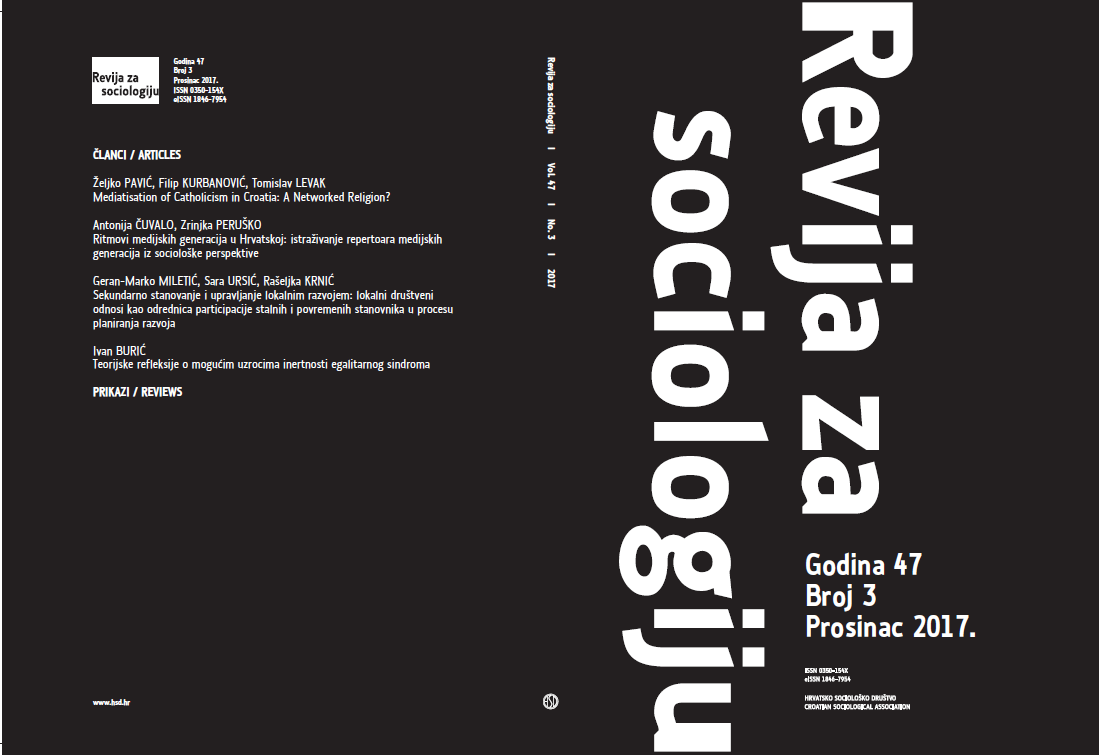Sekundarno stanovanje i upravljanje lokalnim razvojem: lokalni društveni odnosi kao odrednica participacije stalnih i povremenih stanovnika u procesu planiranja razvoja
Second Homes and the Management of Local Development: Local Social Relations as a Predictor of Permanent and Temporary Residents’ Participation in the Development Planning Process
Author(s): Geran – Marko Miletić, Sara Ursić, Rašeljka KrnićSubject(s): Social development, Rural and urban sociology, Economic development
Published by: Hrvatsko sociološko društvo
Keywords: second homes; local development; participation in local development; local social relations; Croatia;
Summary/Abstract: Defining a desirable direction for local development is a complex process. A fundamental problem is finding goals and solutions acceptable to the majority of stakeholders. The planning of local development in residential areas that have experienced a proliferation of second home housing faces an even greater challenge. Meeting development aspirations in these areas requires a complex effort as temporary residents – in addition to the permanent ones – maintain certain expectations. The data analysed in this paper was collected in a survey carried out in the spring and summer of 2016 in the settlement of Okrug Gornji located on the island of Čiovo in Split-Dalmatia County, in Croatia. The research was conducted on a stratified multistage probability sample of 203 permanent and 211 temporary residents. The analyses focussed on two main goals: 1) to discover to what extent the permanent and temporary residents are involved in certain segments of local development planning and 2) to examine the connection between the levels of participation in local development planning and the development of local social relations. The results indicate that the communities of permanent and temporary residents in Okrug Gornji are fairly weakly engaged in the process of seeking solutions that could improve their daily lives. The municipality does not differ from the national framework in that regard. However, a particularly interesting finding was that temporary residents were not only more interested in participating in local development planning but also, in some respects, participated even more actively. In the case of temporary residents, local social relations were positively related to participation in local development planning, while the same factor generated no statistically significant effect in the case of permanent residents.
Journal: Revija za sociologiju
- Issue Year: 47/2017
- Issue No: 3
- Page Range: 303-334
- Page Count: 32
- Language: Croatian

